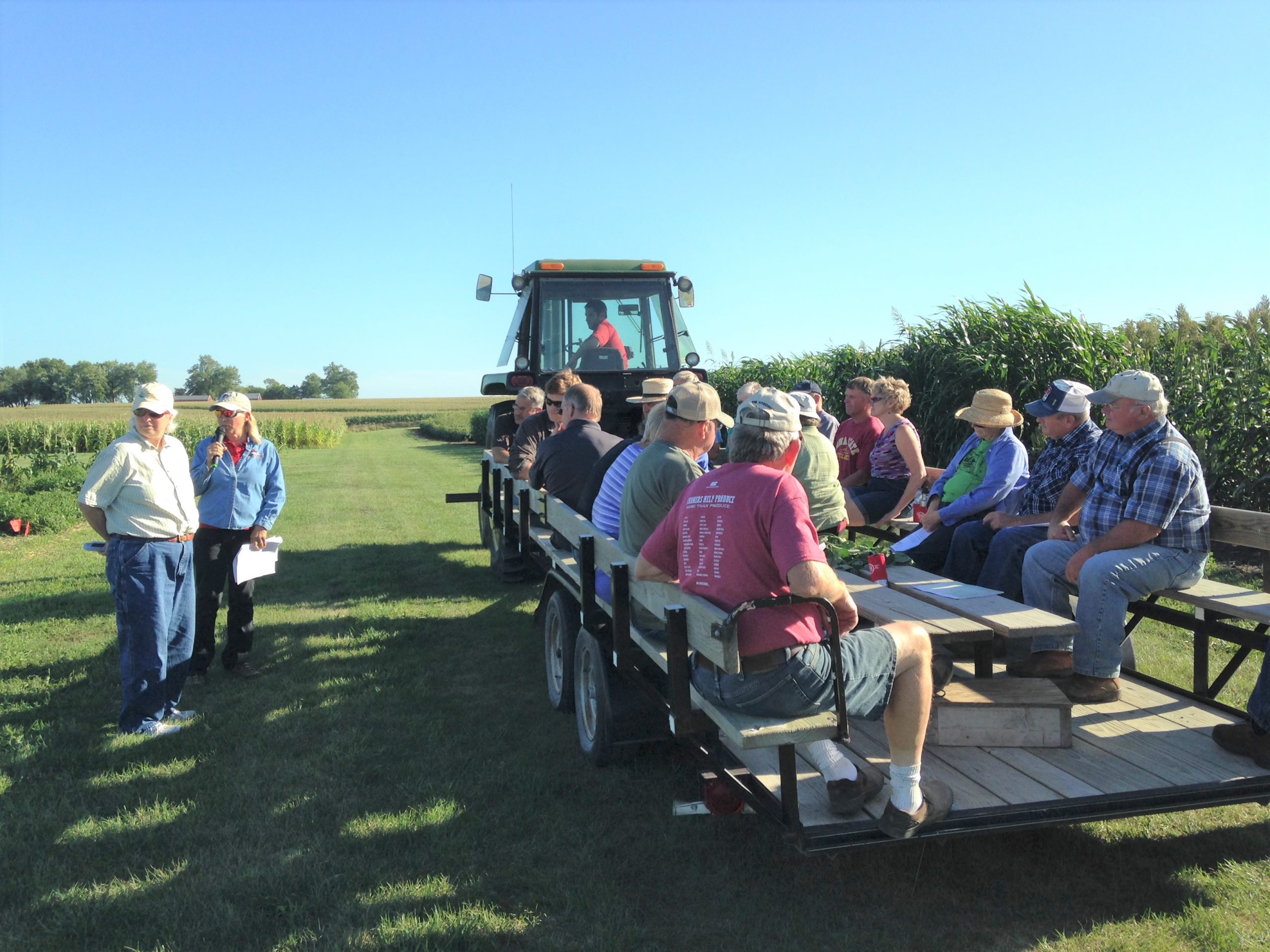
Sep 16, 2020
Virtual organic field day covers derecho damage, drought and COVID-19
The video was recorded at the Iowa State University Neely-Kinyon Memorial Research and Demonstration Farm and is available for viewing on YouTube.
The field day covers the variety of organic research at the Neely-Kinyon Farm, including organic corn, soybeans, oats, alfalfa, peppers, winter squash and grapes.
“This was a very difficult summer,” said Kathleen Delate, professor and extension organic specialist in the departments of agronomy and horticulture at Iowa State University. “Between COVID-19, drought and the derecho, farmers were put through extraordinary pressures this year.”
The Neely-Kinyon Farm was spared the worst of the derecho winds, which flattened corn fields a mere 30 miles north. Organic farmers who were affected by the derecho’s 100 mph winds reported that, with organic corn’s later planting to avoid pollen from nearby conventional GMO corn, the less mature stage of the organic corn may have helped its survival.
With ears still filling, it’s likely the weight of the organic corn was less than the more mature, conventional corn that was downed by the storm. Affected organic farmers expect to be able to harvest their lodged corn with special combine attachments, such as a crop lifter.
Fortunately, timely rains at the beginning of the season have led to excellent productivity and the hope for optimal corn and soybean yields in the Long-Term Agroecological Research experiment at the farm.
The drought conditions have favored some crops, as excessive rains typically can increase disease and decrease oat yields, but this year, when LTAR oats were harvested on July 31, the oats in the four-year rotation (corn–soybean–oats/alfalfa–alfalfa) averaged 106 bushels per acre. Organic farmer Ron Rosmann of Harlan, Iowa, featured in the field day, produced oat crops that yielded 131 bushels per acre. The Rosmanns have weathered the pandemic with a combination of an on-farm store, wholesale and retail sales.
The organic no-till section of the virtual field day demonstrates the use of winter rye and hairy vetch that were planted as a cover crop in Fall 2019, and rolled/crimped with a Rodale roller at the end of May.
Organic peppers and squash were transplanted into the rolled mulch on June 4. Organic no-till offers many benefits in terms of soil quality, with USDA-ARS-NLAE scientists showing greater stored carbon and beneficial soil microbial populations that assist with nutrient cycling.
Producers may consider donating excess vegetables to food banks this year, as many are experiencing record need due to COVID-19.
Organic research results and other timely information will be presented at the virtual Iowa Organic Conference in November. For more information, contact Kathleen Delate with ISU Extension and Outreach at 515-294-7069, or kdelate@iastate.edu.






